In today’s fast-paced digital landscape, where every click counts and customer expectations soar to new heights, staying ahead of the marketing curve can feel like an uphill battle. But what if there was a way to simplify your marketing efforts, streamline your processes, and ultimately drive better results—all without the overwhelming chaos? Enter marketing automation software! These powerful tools are designed to take the guesswork out of your campaigns, enabling you to nurture leads, engage customers, and analyze performance with ease. In this article, we’ll dive into the top six marketing automation platforms that can transform the way you do business. Whether you’re a small startup or a seasoned enterprise, these solutions will equip you with the strategies you need to connect with your audience and boost your bottom line. Ready to revolutionize your marketing approach? Let’s jump in!
Exploring the Best marketing Automation Software for Your Business
In the fast-paced world of digital marketing, choosing the right automation software is crucial for streamlining your processes and maximizing efficiency. With the right tools at your disposal, you can enhance lead generation, nurture customer relationships, and ultimately drive conversions. Let’s dive into some of the standout options available,each designed to cater to various business needs.
hubspot stands out as a comprehensive solution, offering an all-in-one platform that integrates marketing, sales, and customer service tools.Its user-friendly interface allows for easy campaign management, while powerful analytics provide insights into customer behavior. This software is perfect for businesses looking to scale their marketing efforts without overwhelming complexity.
Marketo is another heavyweight in the marketing automation space, known for its robust features tailored to enterprise-level organizations. with capabilities such as advanced lead scoring and segmentation, Marketo enables businesses to customize their marketing strategies based on behavioral data. This means you can target the right audience at the right time, maximizing your return on investment.
If you’re a small to medium-sized business, Mailchimp offers a more budget-friendly option while still delivering powerful automation features.Its easy drag-and-drop interface allows users to create stunning email campaigns effortlessly. Additionally,Mailchimp’s analytics tools help you track performance metrics,giving you the insights needed to optimize your marketing strategies.
| Software | Best For | Key Features |
|---|---|---|
| HubSpot | All-in-One Solution | CRM Integration, Analytics, SEO Tools |
| Marketo | Enterprise Businesses | Lead Scoring, advanced Segmentation |
| Mailchimp | Small to Medium Businesses | Email Campaigns, Analytics, Templates |
ActiveCampaign takes a more personalized approach by focusing on customer experience. With features like behavior-based automation and customer journey mapping, it allows businesses to create tailored messages that resonate with their audience. This platform is ideal for brands looking to enhance customer engagement through targeted messaging.
Pardot by Salesforce is a powerful B2B marketing automation tool that seamlessly integrates with SalesforceS CRM. It offers advanced features like lead nurturing, ROI reporting, and email automation. If your business already uses Salesforce, Pardot ensures that your marketing and sales teams are aligned, enhancing collaboration and efficiency.
whether you’re a startup seeking an affordable solution or an enterprise in need of refined features, there’s a marketing automation software out there that fits your unique needs. By evaluating your business goals and the specific functionalities of each platform, you’ll be better equipped to make an informed decision that elevates your marketing strategy.
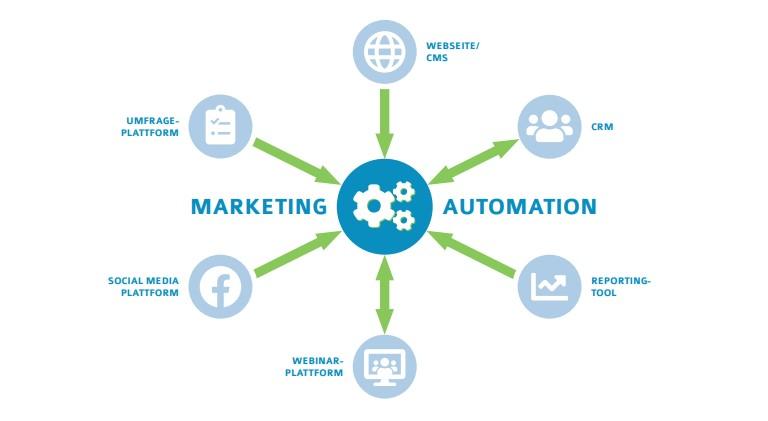
Key Features That Make Marketing Automation software Stand Out
Marketing automation software has revolutionized the way businesses approach their marketing strategies. The right tools can streamline processes, optimize campaigns, and ultimately drive better results. Here are some standout features that set the best marketing automation platforms apart:
- Advanced Segmentation: the ability to segment your audience based on various criteria,such as demographics,behavior,and preferences,allows for highly targeted campaigns. This personalization increases engagement and conversion rates.
- Lead Scoring: Effective marketing automation software includes lead scoring capabilities that help prioritize leads based on their interactions with your content. This ensures that your sales team focuses on the most promising prospects.
- Multi-Channel Campaign Management: An integrated approach to marketing means you can manage email, social media, and online ads from one platform. This cohesive strategy ensures a consistent brand message and a seamless customer journey.
- Analytics and Reporting: In-depth analytics tools provide insights into campaign performance, allowing marketers to measure ROI and adjust strategies in real time. Detailed reports help you understand what works best for your audience.
- Personalized Email campaigns: Automation software enables the creation of personalized email campaigns that resonate with your audience. Tailored content based on user behavior leads to higher open and click-through rates.
Many platforms also offer A/B Testing features that allow you to experiment with different messages, subject lines, and visuals. This practice helps identify what resonates most with your audience, optimizing your marketing efforts continually.
Furthermore, the integration capabilities of modern marketing automation software are remarkable. Many tools can seamlessly connect with your CRM, e-commerce platforms, and other essential software, creating a holistic system that enhances functionality.
| Feature | Benefit |
|---|---|
| CRM Integration | Centralizes customer data for better insights. |
| Workflow Automation | Reduces manual tasks, increasing efficiency. |
| Social Media Management | Enhances your social presence and engagement. |
| Content Management | Facilitates seamless content delivery and tracking. |
customer support and resources are crucial elements that can differentiate marketing automation software. Top-tier platforms provide extensive documentation, tutorials, and responsive support teams, ensuring users can maximize the tool’s potential.
How to Choose the Right Marketing Automation Tool for Your Needs
When it comes to selecting a marketing automation tool, the options can be overwhelming. To narrow down your choices, start by assessing your specific needs and goals. Consider the size of your business, your target audience, and the types of campaigns you plan to run. This foundational understanding will help you pinpoint which features are essential for your success.
Key Features to Consider
- Email Marketing: Look for a tool that offers robust email automation, segmentation, and personalization features.
- Lead management: Ensure the software provides tools for capturing, nurturing, and scoring leads effectively.
- CRM Integration: Choose a solution that integrates seamlessly with your existing Customer Relationship Management system.
- Analytics and reporting: Powerful analytics will help you measure your campaigns’ performance and return on investment.
- user-Friendly Interface: A clean, intuitive interface can save you time and frustration.
Next,consider your budget.Marketing automation tools can vary substantially in price, so its essential to find a solution that aligns with your financial constraints.Many platforms offer tiered pricing models, allowing you to choose a plan that fits your feature requirements without breaking the bank.Be sure to account for any hidden costs, such as additional fees for support or extra features.
trial and Demos
Taking advantage of free trials and demos is a smart move. This hands-on experience allows you to explore the tool’s functionalities and see if it meets your expectations. During the trial period, pay attention to how intuitive the platform feels and whether the customer support team is responsive to your queries.
don’t underestimate the importance of user reviews and case studies. Hearing from other businesses that have used the tool will give you valuable insights into its strengths and weaknesses. Look for testimonials that relate to your industry for the most relevant feedback.
| Tool | Key Feature | Price Range |
|---|---|---|
| HubSpot | Comprehensive CRM Features | Free – $3,200/month |
| Marketo | Advanced Analytics | $1,200/month+ |
| ActiveCampaign | Email Marketing Automation | $9/month+ |
| Pardot | Lead Nurturing | $1,250/month+ |
By taking the time to evaluate your needs, exploring trials, and reading user feedback, you can confidently choose the marketing automation tool that will elevate your business to new heights. Empower your marketing efforts with the right technology,and watch your engagement and conversions soar!
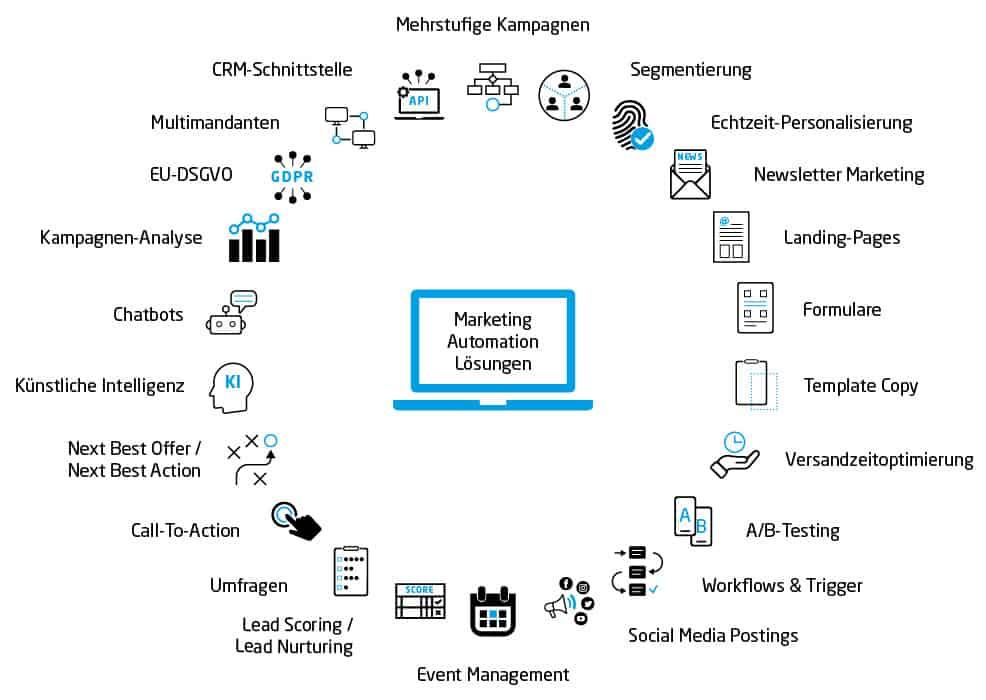
The Benefits of Integrating Marketing Automation into Your Strategy
- Automate repetitive tasks, such as sending emails or managing social media posts.
- Schedule campaigns in advance, ensuring your marketing efforts are consistent even during busy periods.
- Monitor performance in real-time, allowing for quick adjustments and optimization.
- Send targeted messages to specific groups, increasing engagement rates.
- Utilize dynamic content that changes based on user interactions, enhancing relevance.
- Develop tailored campaigns that resonate with individual customer journeys.
- Reduce operational costs by minimizing manual tasks and reallocating resources effectively.
- boost conversion rates through targeted communication and timely follow-ups.
- Increase customer lifetime value by nurturing relationships with automated workflows.
- Identify trends in customer behavior,allowing for proactive strategies.
- Evaluate campaign effectiveness through robust reporting tools.
- Make informed adjustments to your approach based on real-time feedback.
Comparing Pricing models: Finding the Best Value for Your Budget
When evaluating marketing automation software,understanding the pricing models can frequently enough feel overwhelming. Different platforms offer various structures, from monthly subscriptions to one-time fees, and even pay-per-use options. It’s crucial to decipher which model aligns best with your business needs and budget constraints.
Here are some common pricing models you might encounter:
- Monthly Subscription: A straightforward model where you pay a fixed amount each month. Ideal for businesses that prefer consistent budgeting.
- Annual Subscription: Typically offers a discount compared to monthly plans, making it a cost-effective choice for long-term users.
- Pay-Per-Use: Perfect for businesses with sporadic needs. You only pay for the features you use, which can be beneficial if your marketing activities fluctuate.
- Tiered Pricing: Most platforms offer different tiers based on features, user count, or volume of contacts. This adaptability allows you to choose a plan that grows with your business.
Let’s break down some key factors to consider when comparing these models:
| Factor | Monthly Subscription | Annual Subscription | Pay-Per-Use |
|---|---|---|---|
| Flexibility | medium | High | Very High |
| Cost Clarity | High | Medium | Medium |
| Commitment | Low | High | Very Low |
When assessing which pricing model offers the best value, consider your marketing goals and projected growth.For instance,if you plan to scale rapidly,investing in an annual subscription may save you money in the long run. Conversely, if you’re just starting or running a seasonal campaign, a pay-per-use structure might prevent overspending.
Don’t forget to factor in additional costs such as onboarding, training, or add-ons that could impact your overall budget. Many providers offer free trials, so take advantage of these opportunities to test different systems before committing. This way, you can ensure that the software you choose not only fits your budget but also meets your marketing needs effectively.
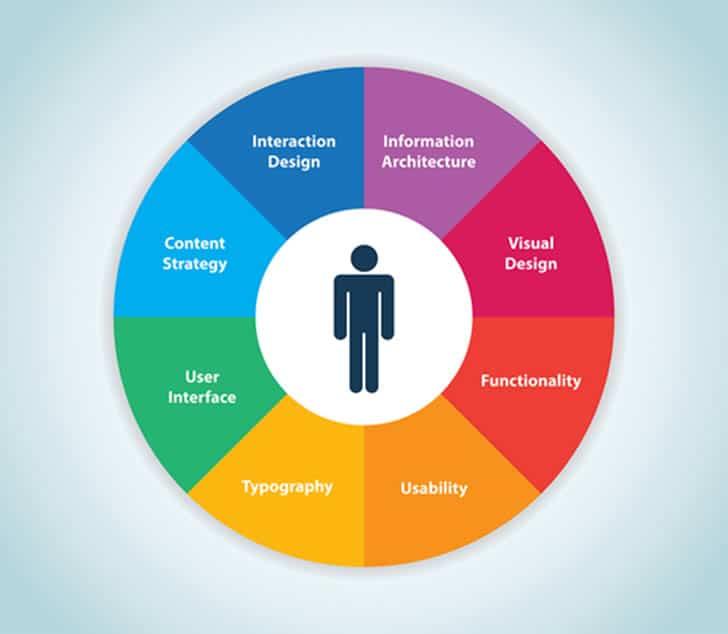
User Experience Matters: Finding Software That’s Easy to Use
When it comes to choosing marketing automation software, user experience is often an overlooked aspect. However, a platform that is intuitive and easy to navigate can significantly enhance your marketing efforts. Imagine spending less time figuring out how to use the software and more time actually engaging with your audience. The right tools should empower you, not frustrate you.
Consider these key factors when evaluating the user experience of marketing automation tools:
- Intuitive Interface: Look for software with a clean and simple layout. A well-designed interface helps users quickly find what they need without unnecessary clicks or confusion.
- Customizable Dashboards: The ability to personalize your dashboard can make a world of difference.Choose software that allows you to see your most critically important data at a glance.
- Seamless Integration: Your marketing automation software should easily connect with other tools you use, such as CRM systems or social media platforms, simplifying your workflows.
- User Support: excellent support can enhance your experience. Platforms that offer tutorials, live chat, or responsive customer service can help you overcome any hurdles.
Here’s a brief comparison of some top marketing automation software solutions, highlighting their user experience features:
| Software | Intuitive Interface | Customizable Dashboards | User Support Options |
|---|---|---|---|
| HubSpot | ✔️ | ✔️ | Live Chat, Tutorials |
| Mailchimp | ✔️ | ✔️ | Email, Chat Support |
| ActiveCampaign | ✔️ | ✔️ | Phone, Email Support |
| Marketo | ✔️ | ❌ | Email, Community Support |
Ultimately, investing in marketing automation software should be about more than just features; it’s about how those features work together to enhance your marketing strategy. An easy-to-use platform will enable your team to operate efficiently, boost productivity, and improve overall campaign performance. Remember, the goal is to find a solution that not only meets your technical needs but also fits seamlessly into your daily operations.
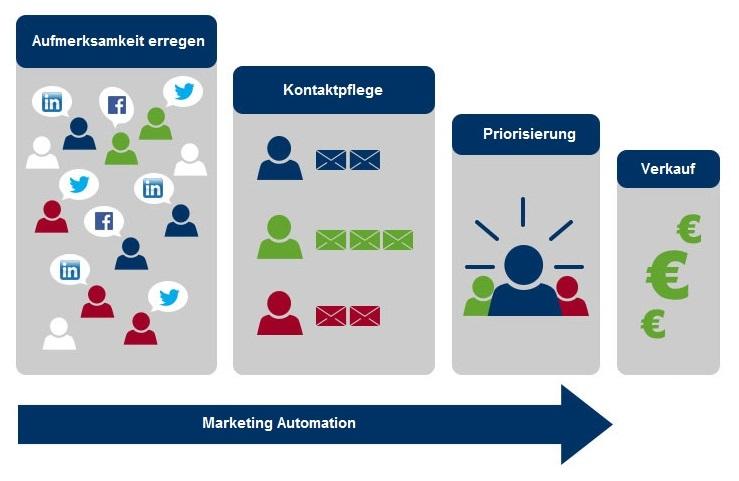
Real-Life Success Stories: How Companies Transformed Their Marketing with Automation
In the fast-paced world of digital marketing, companies are constantly seeking innovative solutions to enhance their outreach and improve customer engagement. One of the most significant advancements in recent years has been the rise of marketing automation. Here are some inspiring examples of how businesses have successfully transformed their marketing strategies through automation.
1. Company A: Personalized Customer Journeys
Company A, a leading e-commerce retail brand, faced challenges in converting website visitors into loyal customers. By implementing a marketing automation platform, they were able to segment their audience based on behavior and preferences. This allowed them to create tailored email campaigns that spoke directly to each segment, resulting in:
- 50% increase in email open rates
- 30% boost in conversion rates
- 25% rise in customer retention
2. Company B: Streamlined Lead Nurturing
Company B,a B2B software provider,struggled with lead nurturing and converting prospects into paying clients.By adopting a sophisticated marketing automation tool, they established a comprehensive lead scoring system that prioritized high-quality leads. This approach enabled them to automate follow-ups and personalized content delivery, resulting in:
- 40% reduction in lead conversion time
- 15% increase in sales team productivity
- 20% growth in annual revenue
3. Company C: Enhanced Customer Engagement
A travel agency, Company C, wanted to improve their customer engagement throughout the booking process. By utilizing a marketing automation solution, they were able to send personalized travel recommendations, reminders, and follow-ups. This not only kept customers informed but also encouraged repeat bookings. The results were impressive:
- 30% increase in repeat customers
- 20% rise in social media engagement
- 35% boost in customer satisfaction scores
These stories illustrate just a fraction of the potential that marketing automation brings to the table. Companies that embrace these tools can achieve remarkable results, streamline their operations, and foster deeper relationships with their customers. If you’re still on the fence about integrating automation into your marketing strategy, consider how these success stories can inspire your journey.
| Company | Key Benefit | Result |
|---|---|---|
| Company A | Personalized Campaigns | 50% increase in open rates |
| Company B | Lead Scoring | 40% reduction in conversion time |
| Company C | Engagement Follow-ups | 30% increase in repeat customers |
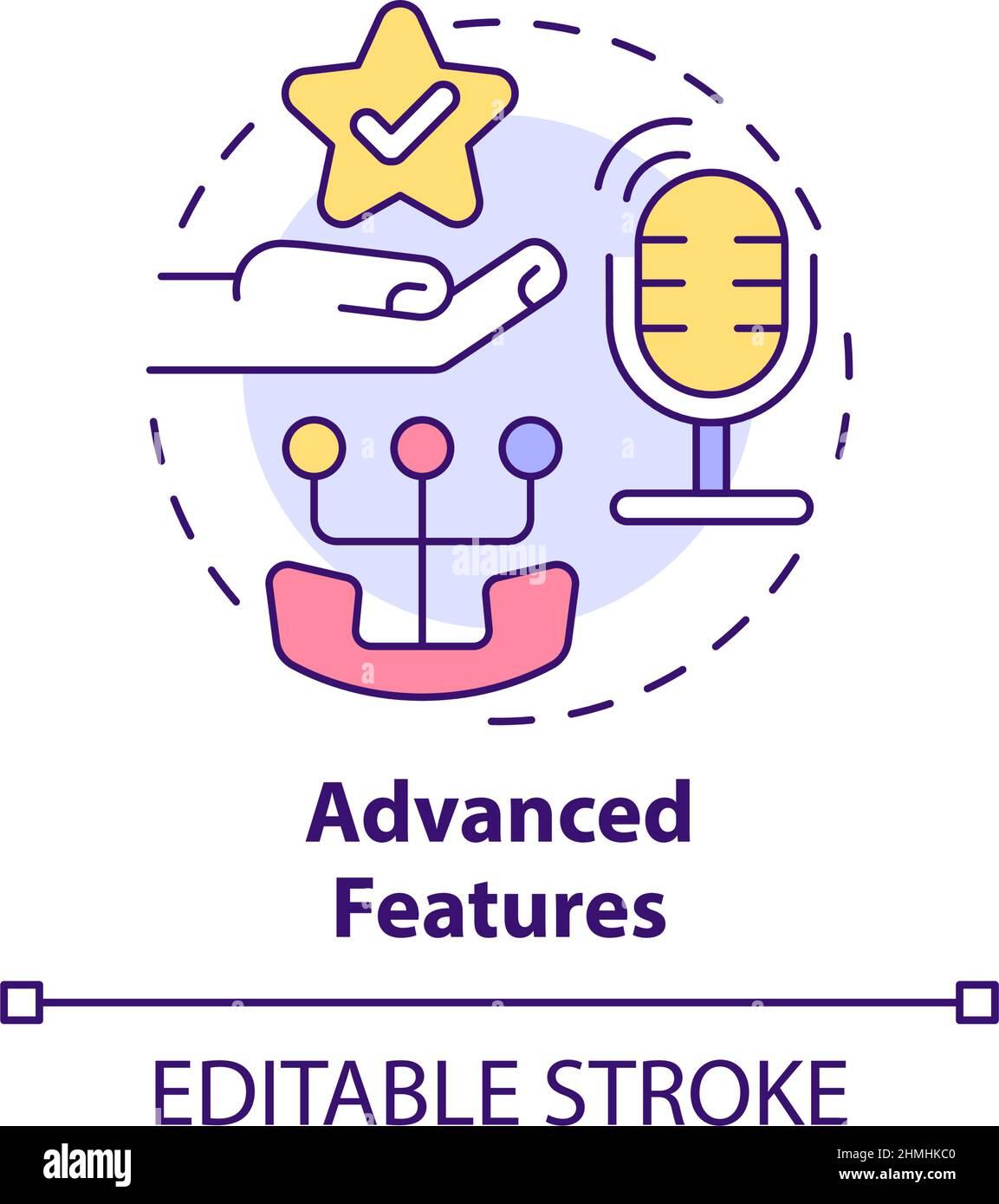
Unlocking Advanced features: What to Look for Beyond the Basics
When diving into the world of marketing automation, it’s easy to get swept away by the basic features that most platforms offer. However, to truly maximize your marketing efforts and ROI, it’s essential to explore the advanced functionalities that can set your strategy apart from the competition. Here are some key aspects to consider:
- Segmentation and Targeting: Look for software that offers advanced segmentation capabilities. This allows you to categorize your audience based on various criteria such as behavior, demographics, and engagement levels. Tailored messaging will resonate more with specific segments, leading to higher conversion rates.
- AI-Driven Insights: Artificial intelligence can dramatically enhance your marketing strategy. Advanced platforms often come with tools that predict customer behaviors, suggest personalized content, and automate decision-making processes based on data. These insights can help you anticipate needs and adjust your campaigns in real-time.
- integration Capabilities: Ensure that the software can seamlessly integrate with other tools you’re already using. Whether it’s your CRM, social media platforms, or e-commerce solutions, a well-integrated system ensures a smooth flow of facts, enabling cohesive marketing strategies.
Moreover, don’t overlook features that facilitate collaboration among teams. Look for tools that provide:
- Multi-User Access: Features that allow multiple users to collaborate can enhance productivity and ensure that everyone is on the same page.
- Custom Workflows: Tailor workflows to fit your team’s specific needs. This flexibility can streamline processes and reduce bottlenecks in campaign execution.
| Feature | Benefit |
|---|---|
| Dynamic Content | Personalizes emails and landing pages based on user interaction. |
| Lead Scoring | Helps prioritize leads based on engagement and likelihood to convert. |
| Reporting and Analytics | Provides detailed insights into campaign performance for data-driven decisions. |
Lastly, consider platforms that offer robust customer support and training resources.Advanced features can be complex, and having access to responsive support and comprehensive tutorials can make the implementation process smooth and efficient. Ultimately, choosing the right marketing automation software will empower your business to engage more effectively with customers, streamline operations, and drive growth.

Support and Resources: Ensuring You Have Help When You need It
When diving into the world of marketing automation, having the right support and resources at your fingertips can make a world of difference.Whether you’re a seasoned pro or just starting out, knowing where to turn for help can enhance your experience and effectiveness with these powerful tools.
Many marketing automation software platforms provide extensive documentation and tutorials. These resources can guide you through everything from initial setup to advanced features. Be sure to take advantage of:
- Video tutorials that provide step-by-step guidance.
- Comprehensive knowlege bases filled with articles and tips.
- Community forums where you can ask questions and share experiences.
Moreover, consider the availability of customer support. A responsive support team can significantly reduce the learning curve associated with new software. Look for platforms that offer:
- Live chat for immediate assistance.
- Email support for detailed inquiries.
- Phone support for those who prefer speaking to someone directly.
Another valuable resource is webinars and workshops. Many companies host regular sessions where you can learn best practices, tips, and tricks straight from industry experts. These events not only boost your knowledge but also allow you to network with other users. Here’s a quick look at the benefits you might expect from such sessions:
| Benefit | Description |
|---|---|
| Expert Insights | Gain knowledge from industry leaders and seasoned users. |
| Real-time Q&A | Ask questions and get immediate feedback. |
| Networking Opportunities | Connect with peers and share experiences. |
Lastly, don’t overlook online communities and social media groups. Many users find immense value in connecting with others facing similar challenges and successes. Engaging in these platforms can provide you with insights and support that are frequently enough just as valuable as formal resources. Whether it’s a Facebook group, a LinkedIn network, or dedicated Slack channels, these communities can be a treasure trove of information.
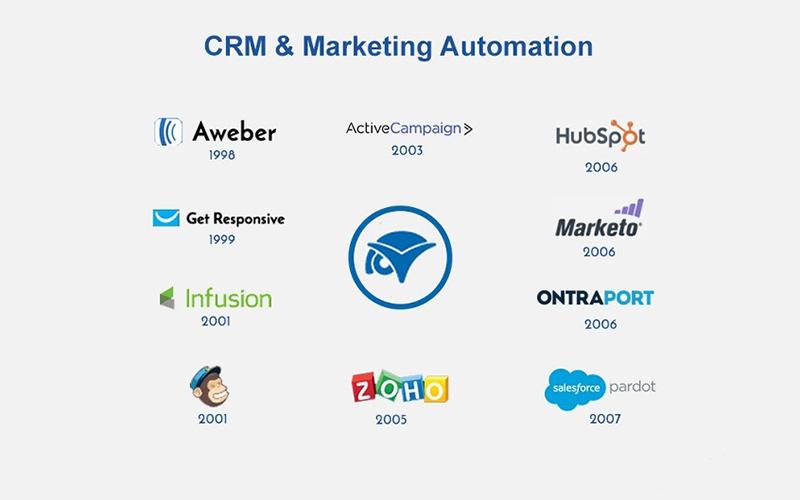
Future Trends in Marketing automation Software You Should Know About
As we dive deeper into the digital age, marketing automation software continues to evolve, shaping how businesses connect with their audiences. here are several key trends that are set to redefine the landscape of marketing automation in the near future:
- AI-Driven Insights: The integration of artificial intelligence into marketing platforms is more than just a trend; it’s becoming a necessity. AI algorithms can analyze consumer behavior and predict trends, helping marketers create personalized campaigns that resonate on a deeper level.
- Hyper-personalization: Gone are the days of generic email blasts. With advanced automation tools, brands can now deliver tailored messages based on user behavior, preferences, and demographics, increasing engagement and conversion rates.
- Multi-Channel Integration: The future is all about seamless communication across multiple channels. Marketing automation software will increasingly support integrated campaigns that allow businesses to interact with customers through email,social media,SMS,and even chatbots in a cohesive manner.
- Enhanced Analytics: As marketing data becomes more complex, the ability to derive meaningful insights will be crucial. future automation tools will provide more sophisticated analytics, enabling marketers to track performance in real-time and make data-driven decisions swiftly.
- Focus on Customer Experience: With competition intensifying, providing extraordinary customer experiences will be vital. Automation software will evolve to include features that enhance user experience,such as automated customer service responses and personalized engagement strategies.
- Integration of Voice Search: With the rise of smart speakers and voice-activated devices, optimizing marketing automation for voice search is on the horizon. This will require marketers to rethink their content strategies and how they target audiences through voice queries.
Moreover, companies will need to remain aware of data privacy regulations. As consumers become more conscious of their data, marketing automation platforms will have to adapt, ensuring compliance while still delivering effective campaigns.
| Trend | Impact on Marketing |
|---|---|
| AI-Driven Insights | Improved targeting and personalization |
| hyper-Personalization | Higher engagement rates |
| Multi-channel Integration | Consistent customer experience |
| Enhanced Analytics | Data-driven decision making |
staying ahead of these trends will be essential for marketers looking to leverage technology effectively. Embracing these advancements not only sets businesses apart from their competitors but also empowers them to build stronger, more meaningful relationships with their audiences.
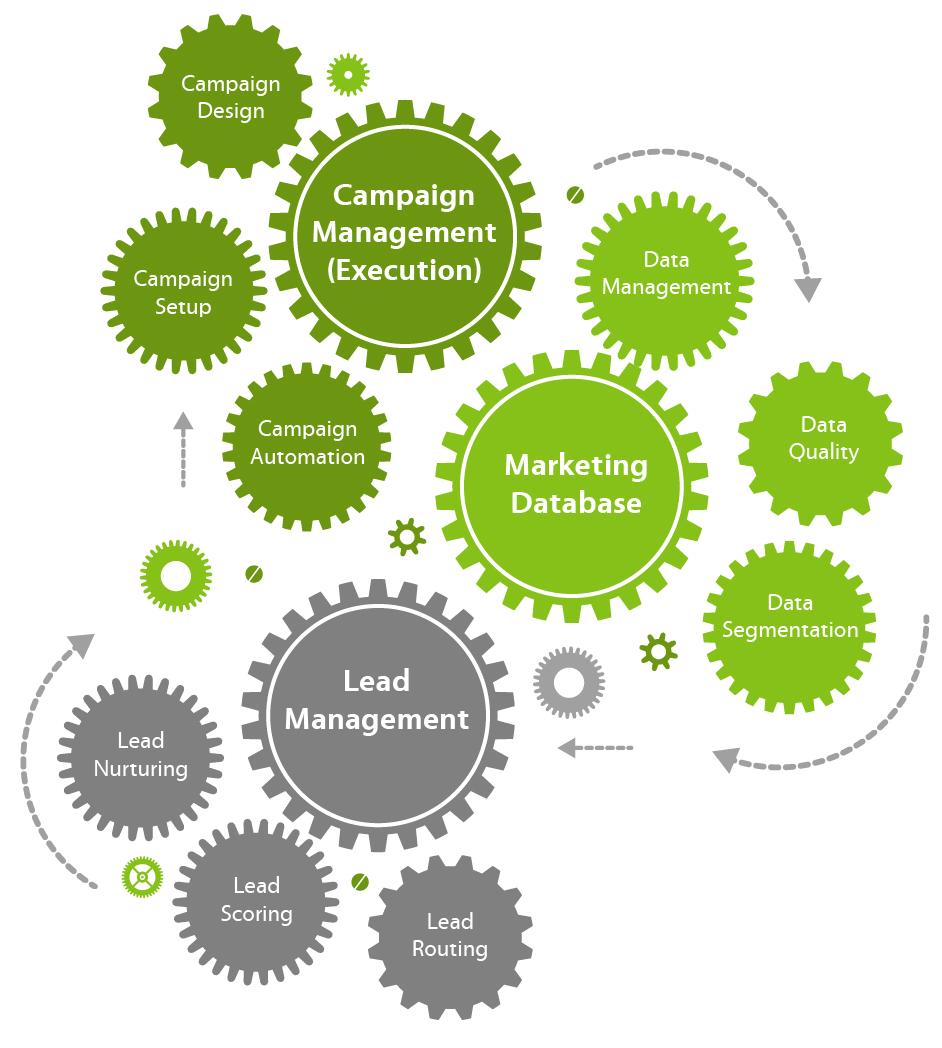
Getting Started with Your Chosen Marketing Automation Tool
Congratulations on selecting a marketing automation tool that fits your business needs! Now, it’s time to dive into the setup and make the most of its features. The first step is to familiarize yourself with the dashboard. Take a tour around the interface, and don’t hesitate to explore the various tabs and options available. This will give you a clear understanding of how to navigate the software effectively.
Next, it’s essential to define your goals.What do you want to achieve with marketing automation? Whether it’s generating leads, nurturing existing customers, or boosting your social media presence, having clear objectives will guide your setup process. Write down your goals and keep them visible as you start using the tool.
Once your goals are defined,it’s time to integrate your existing platforms. Most marketing automation tools allow seamless integration with:
- Email marketing services
- Customer Relationship Management (CRM) systems
- Social media accounts
- web analytics tools
Integrating these systems will centralize your data, making it easier to track performance and adjust your strategies accordingly.
Now, let’s focus on creating your first automated campaign. Start simple—choose a specific audience segment and determine the type of content they would find valuable. Here’s a quick guide to help you set it up:
| step | Description |
|---|---|
| 1. | Select your audience segment. |
| 2. | Choose the campaign type (email, social, etc.). |
| 3. | Design your content, ensuring it’s engaging and relevant. |
| 4. | Set up triggers (like a user signing up for a newsletter). |
| 5. | Test the campaign before going live. |
Don’t forget to monitor the performance of your campaigns. Most automation tools provide real-time analytics, allowing you to see what’s working and where adjustments may be needed. Keep an eye on metrics such as open rates,click-through rates,and conversion rates.
remember that marketing automation is an ongoing process. Regularly update your content, tweak your campaigns based on feedback, and stay informed about new features offered by your tool. By continually refining your approach, you’ll maximize the benefits of your marketing automation software and drive significant results for your business!
Final Thoughts on Elevating Your Marketing Efforts with Automation
As you explore the world of marketing automation software, it’s clear that the right tools can significantly enhance your marketing strategies. By leveraging automation, you can not only save time but also improve the precision and effectiveness of your campaigns. Imagine dedicating less time to repetitive tasks and more time to crafting creative strategies that resonate with your audience.
One of the most compelling advantages of automation is its ability to deliver personalized experiences at scale. With features like segmentation and dynamic content, you can tailor your messages to different customer segments, ensuring that your audience feels valued and understood. This level of personalization can lead to higher engagement rates and foster long-term loyalty, as customers are more likely to connect with brands that cater to their needs.
furthermore, data-driven insights are at the heart of effective marketing automation. Most platforms come equipped with robust analytics tools that provide real-time feedback on campaign performance.This means you can easily track what’s working and what’s not, allowing you to pivot your strategies quickly and effectively. By making data-informed decisions, you can optimize your marketing efforts continuously, ensuring that you stay ahead of the competition.
Another crucial aspect to consider is the integration capabilities of marketing automation software. The ability to connect with other tools and platforms you already use can streamline your workflows and enhance productivity. Whether it’s integrating with your CRM, social media accounts, or email marketing tools, a well-integrated system can save you significant time and effort, letting you focus on what truly matters—growing your business.
| Feature | Benefit |
|---|---|
| Time-Saving | Automates repetitive tasks, freeing up your schedule. |
| Personalization | Delivers tailored messages to enhance customer connection. |
| Analytics | Provides insights to optimize campaigns in real-time. |
| Integration | Simplifies workflows with seamless tool connectivity. |
Incorporating automation into your marketing strategy is not just a trend; it’s a necessity in today’s fast-paced digital landscape. By embracing these innovative solutions, you’re not only enhancing efficiency but also creating opportunities for deeper customer relationships. Remember, the goal is to work smarter, not harder, and with marketing automation, you can achieve that.
Ultimately, the choice of software should align with your specific business needs and goals. Take the time to explore different platforms, evaluate their features, and determine which ones can elevate your marketing efforts the most. As technology continues to evolve, so too should your approach to marketing—embrace automation, and watch your efforts flourish.
Frequently Asked questions (FAQ)
Q1: What is marketing automation software, and why should I consider using it?
A1: Great question! Marketing automation software helps businesses streamline, automate, and measure marketing tasks and workflows. Imagine having an extra pair of hands that never tire! This technology can handle repetitive tasks like email campaigns, social media posting, and lead tracking, allowing you to focus on strategy and creativity. If you want to save time, boost productivity, and enhance your marketing efforts, investing in marketing automation is a smart move!
Q2: What are some key features I should look for in marketing automation software?
A2: When searching for the right software, keep an eye out for features like email marketing, lead scoring, customer segmentation, social media management, and analytics. You want a tool that not only automates your tasks but also provides insights into campaign performance. Look for user-friendly interfaces and integration capabilities with your existing tools. Trust me, having a well-rounded suite can make all the difference!
Q3: Can you share some of the top marketing automation software options available today?
A3: Absolutely! Here are a few of the top contenders:
- HubSpot: Known for its comprehensive features and user-friendly interface.
- Mailchimp: Excellent for email marketing with great automation features.
- Marketo: Ideal for larger enterprises with advanced lead management tools.
- ActiveCampaign: Offers powerful automation and CRM capabilities.
- pardot: Perfect for B2B marketing with strong analytics and reporting.
- GetResponse: great for small to medium-sized businesses looking for all-in-one solutions.
Each option has its strengths, so consider your specific needs when making a choice!
Q4: How can marketing automation software improve my return on investment (ROI)?
A4: Marketing automation can significantly improve your ROI by enhancing efficiency and effectiveness. By automating repetitive tasks, you free up time for your team to focus on higher-value activities, like strategizing and personalizing customer interactions.Plus,with targeted campaigns based on customer data,you’ll see higher conversion rates. It’s all about working smarter,not harder!
Q5: Is marketing automation suitable for small businesses,or is it mainly for larger companies?
A5: Great point! While many people think of large enterprises when they hear “marketing automation,” it’s absolutely beneficial for small businesses too. In fact, small businesses can leverage automation to compete with larger firms by maximizing limited resources. There are affordable options tailored for smaller budgets, allowing you to engage with customers effectively and grow your business without breaking the bank.
Q6: What’s the biggest misconception about marketing automation?
A6: One common misconception is that marketing automation is a “set it and forget it” solution.While it does automate tasks, it still requires ongoing attention and strategy.You need to actively monitor performance metrics,tweak campaigns,and stay engaged with your audience for the best results. Think of it as a powerful tool that enhances your marketing efforts, but not a complete replacement for human insight and creativity!
Q7: How do I get started with marketing automation?
A7: Getting started is easier than you might think! First, define your goals: Are you looking to increase leads, improve customer engagement, or enhance your email marketing? Next, research the software options that align with your goals and budget. Many providers offer free trials, so take advantage of those! invest time in learning the platform and crafting your first automated campaigns. Once you see the results, you’ll wonder how you ever managed without it!
Concluding Remarks
As we wrap up our exploration of the top marketing automation software available today, it’s clear that the right tools can significantly elevate your marketing efforts.Whether you’re a small business owner or part of a larger marketing team, these platforms offer a plethora of features designed to streamline your processes, enhance customer engagement, and ultimately drive conversions.
Remember, choosing the right software isn’t just about the features; it’s about finding the solution that aligns with your specific needs and goals. So, take your time to evaluate the options we’ve discussed, consider what matters most to your business, and don’t hesitate to request demos or trials.
By investing in a robust marketing automation tool, you’re not just saving time; you’re setting your business up for growth and success. So why wait? Dive into the world of marketing automation and start transforming your strategies today. Your future self will thank you!

